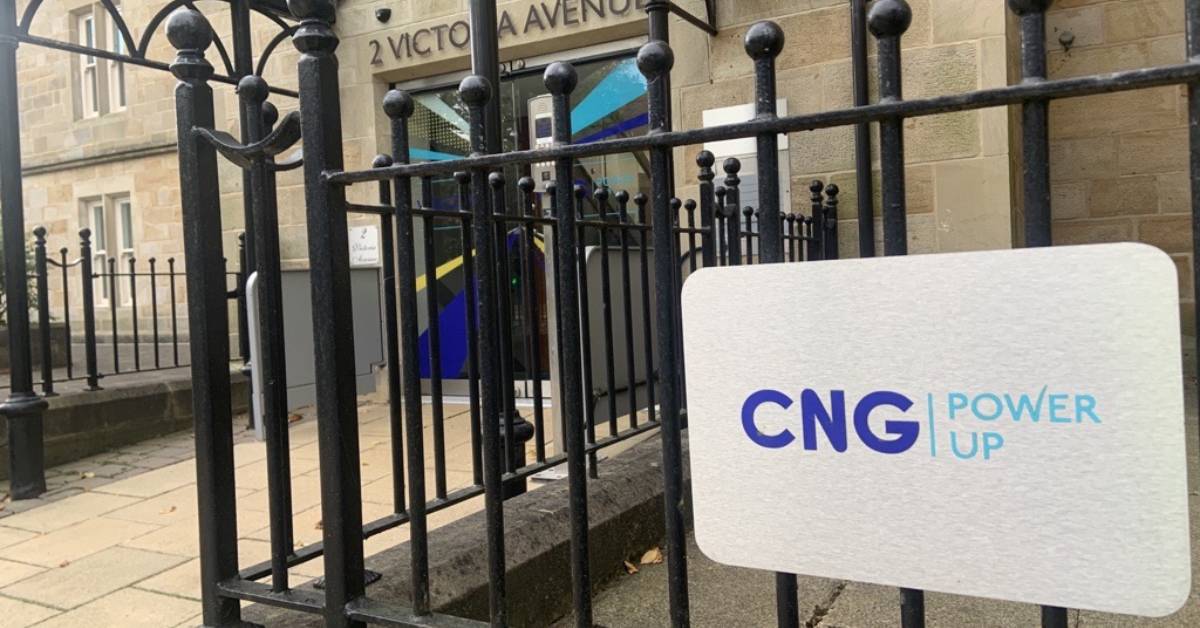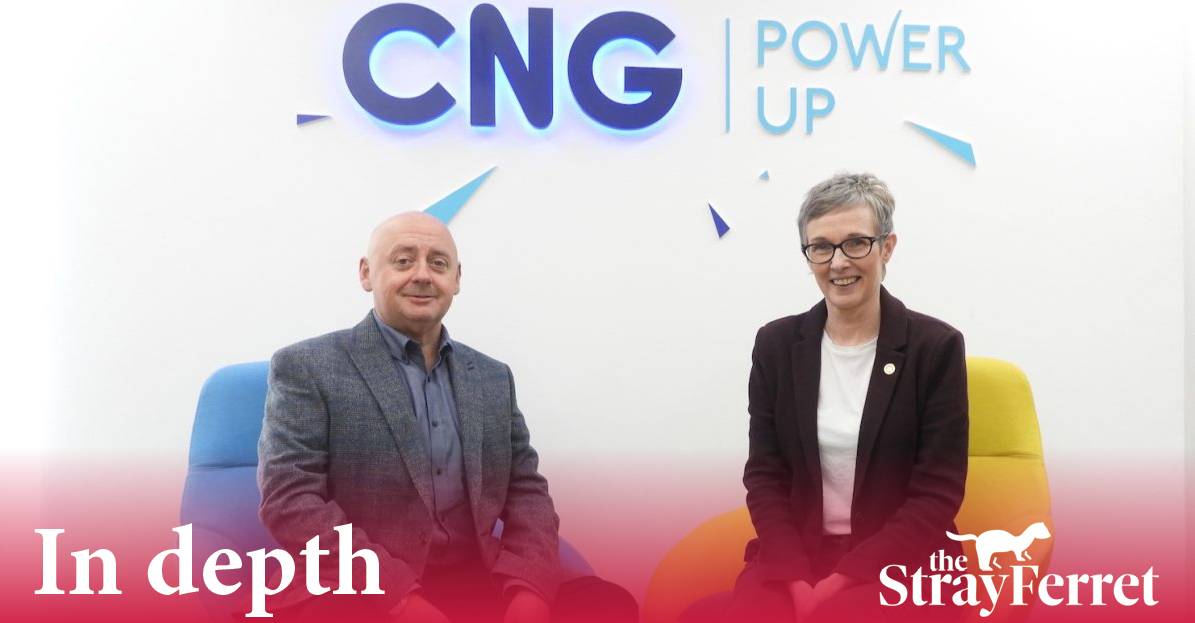A sentence on CNG‘s website on Wednesday afternoon spelled the end of a company that for the majority of its 27 years was regarded as a Harrogate success story.
CNG had two business arms, supplying wholesale gas to around 20 energy providers as well gas to 41,000 small and medium-sized businesses, including several in the district.
But spiraling wholesale gas prices over the past few months meant CNG’s collapse was swift and unforgiving.
When was CNG founded?
CNG was founded by Colin Gaines following the deregulation of the gas industry in 1994.
The company began in a single office on the top floor of the Schlatter building on York Place but expanded to employ 145 staff with many in customer service and sales roles.
CNG president and former managing director Jacqui Hall told Insider Media in 2016 about the early days of the company:
“When we started we would knock on doors, word of mouth was critical. Lots of the staff used to work for British Gas and the clients were pubs and restaurants; independent businesses because we could make more margin.
“You could have easily built it on big contracts but if one went bust then the whole business would fall; the plan was lots of little, bigger-risk, bigger-margin clients – that was a strategic decision.”
Mr Gaines died in 2006 as did a second major shareholder within two days.
The company then had a number of partners including conglomerate Glencore, but in 2012, Ms Hall led a management buyout of the business.
CNG continued to expand and in 2014 moved from an office on Victoria Avenue into the former HM Revenue and Customs building on the other side of the road.
By 2016 it had posted revenue of £250 million — rising from £25 million in 2006.

CNG’s head office on Victoria Avenue
CNG was also synonymous with Harrogate Town football club, becoming the first-ever sponsor of their Wetherby Road ground from 2008 until 2020 when it was called the CNG Stadium.
The company was also well-known in Harrogate as a supporter of local charities and community projects. Garry Plant, Harrogate Town’s commercial director, told the Stray Ferret that the club was “deeply troubled” by their downfall.
He said:
“The club’s association with CNG was spread over many, many years and we are all deeply troubled by their demise.
“As a company they engaged in community projects across the district and they willingly gave a great deal back.
“We wish everyone at CNG the very best of fortune going forward.”
Timeline of CNG’s collapse
- October 14: Harrogate firm CNG to stop supplying energy companies
- October 29: Major Harrogate employer CNG ‘enters liquidation’
- November 2: All 145 CNG energy staff in Harrogate set to lose jobs
- November 3: Harrogate energy firm CNG ceases trading
Why CNG failed
There has been a global squeeze on energy supplies with the price of gas rising by 250% since January.
This is, in part, due to a cold winter last year and increased demand from China.
CNG’s troubles became public on October 14 when Mr Stanley sent a letter to customers saying it was exiting the wholesale market.
The Stray Ferret understands the company was in talks with the government in an effort to save the business.
But the talks were to no avail. In a statement published this week after it ceased trading, Mr Stanley said the global energy crisis meant it could not continue trading.
The company had offered fixed-term tariffs to businesses over several years, but with wholesale prices rocketing it meant it had to pay the difference, which was ultimately unsustainable.
Mr Stanley said:
“The global energy crisis and extremely high wholesale energy costs have affected many suppliers already and unfortunately CNG is the next casualty. We have tried and exhausted all options to remain in business.”
Jamie Hailstone, former news editor of specialist energy website Utility Week, told the Stray Ferret that due to the current market crisis, it was inevitable that CNG would go out of business.
He said:
“CNG is the 19th business supplier to go out of business to September. The current crisis in the energy sector has been caused by the massive hike in prices, which has puts smaller suppliers like CNG under immense pressure, because they do not have the reserves of larger suppliers.
“It’s unlikely they will be the last casualty this Autumn, as the sector is bracing itself for more suppliers to go under.”
What happens next
CNG has now entered the Supplier of Last Resort process operated by the government’s energy regulator Ofgem.
The SoLR procedure was established by Ofgem as a safety net to ensure that when a company stops supplying energy, affected customers are guaranteed continuity of supply through other companies.
Administrators are expected to be appointed to wind up the company. All 145 jobs have been lost and staff have been told that wages for days worked this month are not guaranteed to be paid.
Businesses supplied by CNG also are unprotected by an £1,277 annual price cap, which is only for domestic consumers.
These business owners, including Grantham Arms landlord Simon Wade in Boroughbridge, will now be exposed to much higher gas bills.
He said last month:
“I’m facing a massive hike and it’s nothing to do with us.
“We’re completely shackled and it’s put us in a bad position”.
David Simister, chief executive, Harrogate District Chamber of Commerce told the Stray Ferret that the collapse of one of Harrogate’s best-known businesses is a “real blow” to the town.
“I feel incredibly sad for those 145 employees who have lost their jobs.
“Over the years, CNG, became one of the best-known business names in the district. It was a great supporter of local charities and a proud sponsor of Harrogate Town Football Club.
“It is the latest victim of the surge in wholesale energy costs, and more than likely it won’t be the last. For those firms who were supplied by CNG, they will now be contacted by a new supplier and placed on a new tariff, which I’m afraid to say will be higher than their previous agreement.”







